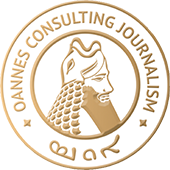The texts published by the individual authors reflect only their own opinions and not those of the editors and publishing platforms
.jpg)
Individual radicalisation as a challenge to Norway
When the trial of 22-year-old Philip Manshaus started in Oslo earlier this month, it was just a small announcement in the German-language media. The process evokes painful memories for the people of Norway. Philip Manshaus attacked the Al-Noor mosque in Baerum on August 10, 2019 but was stopped at the right time. Manshaus' right-wing extremist ideology strongly reminded of an earlier attack in the history of the country.
The worst attack in Norway's history occurred on July 22, 2011, when terrorist Anders Behring Breivik murdered over 77 people in Oslo’s administrative district and on the island of Utoya. The tragedy brought the Scandinavian country into the focus of terror research for the first time. Especially for the Jewish and Muslim minority in Norway, the question arose how safe they are in their country. A question which has become more topical in today's (corona) times of crisis.
Vibeke Moe, research officer and project coordinator at the Norwegian Center for Holocaust and Minority Studies, works on these topics. Her areas of research include anti-Semitism, Muslim-Jewish relations and issues related to the historical coexistence between Jews and Muslims in Norway.
Maximilian Feldmann: Could you describe the current situation of religious minorities in Norway?
Vibeke Moe: Actually, Norway is a safe country. However, we were able to find out through surveys that about 34 % of the Norwegians have prejudices against Muslims. There are approximately 200,000 Muslims in Norway. As for the Jewish community in Norway, it is very small with around 1200 members and there are only two synagogues in the country. However, anti-Semitism is an issue. Fortunately, classic anti-Semitism seems to be on the retreat. According to our surveys, only 8 % of those questioned have anti-Semitic stereotypes. This concerns attitudes in the general population. On the other hand, radicalisation takes place individually and may still constitute a danger, independent of popular attitudes.
M.F.: Did the terror attacks of Behring Breivik influence your work?
V.M.: Definitely! I think we all became aware of the severity of the threat from right-wing extremism and what radicalised individuals are capable of. Aiming his attack at the summer camp of the Worker’s Youth League, Breivik symbolically hit the centre of our democracy. The attack also demonstrated how radicalisation has no limits in our digitalised world, unfortunately a tendency that has become even stronger since 2011. Our research is concerned with Islamophobia, antisemitism and the situation of minorities in Norway. We also study the impact of conspiracy theories, which was central in Breivik’s worldview. Right wing extremists and Islamist extremists were in 2020 defined by the Norwegian police as posing equal security threats.
M.F.: What are Norway’s measures to embank anti-Semitism?
V.M.: In 2011 our centre conducted the first population survey on antisemitism in Norway. At that time, 12% of Norwegians showed antisemitic prejudice. However, in the latest survey, from 2017, results showed that around 8 % had prejudices against Jews. A reason for this positive development may be increased awareness of antisemitism as a contemporary problem in society. The government initiated an action plan in 2016, which included many projects, research and education, measures related to protection of the Jewish community and other initiatives. However, when it comes to measuring attitudes, the question is also how to define antisemitism. If you take anti-Israeli attitudes into it, for example, the claim that Israelis do the same to the Palestinians as the Nazis did to Jews, we found 38 % support in the population in 2011. In 2017, it had dropped to 32%, but this is still relatively high. Violent antisemitism is rare in Norway. We have recorded only 19 cases of antisemitic hate crime in 2019; of course, hate crime is difficult to measure. There are presumably quite a few cases that are not registered.
M.F.: You spoke about individual radicalisation. Which groups are affected, and which role plays the digitalisation?
V.M.: Online radicalisation is a global phenomenon, but radicalisation takes place via various means, through personal contact and networking. The Norwegian extreme right-wing scene seems to be more active and growing, though it is still relatively small. It has a link to Sweden through the so-called "Nordic Resistance Movement", which claims to protect Scandinavia and the “Nordic” as a self-defence union against a number of enemies and an “invasion of immigrants”. Breivik and Manshaus shared this idea of a forthcoming disaster and threat towards their “race”. The Internet plays a major role in individual radicalisation. Manshaus e.g. was inspired by the attacks in New Zealand. The right-wing extremists form alliances online. On the other hand, there is radicalisation within the Muslim community. There are different motivations behind radicalisation processes, but some have experienced exclusion and search for belonging, religious awakening plays in and a search for a purpose in life. Extremists use the Internet to spread ideology in a very professional manner. Some may seek "revenge" on western society out of solidarity with Muslims in other regions.
M.F.: How does the Corona- crisis affect this development?
V.M.: Historically, crises have been shown to increase societal tensions. Prejudices such as antisemitism serve to “explain” the situation, providing a scapegoat. This happened e.g. during the last economic crisis. A survey from 2013 showed one in five Jews in Europe had heard that Jews were responsible for the economic crisis. In times of crisis, antisemitic conspiracy theories thrive. These include claims such as Jews are behind Corona or Israel wants to use the vaccine to attack Iran. Furthermore, we see a connection between different conspiracy theories. Anti-Muslim or anti-immigrant conspiracy theories may have an antisemitic basis when it is claimed, for example, that Muslims invade Europe, but Jews are in control and acting as a subversive force.
M.F.: Could religions to something against these tendencies?
V.M.: Definitely! There are common goals in all religions, and these have to step in the foreground. It is true that extremists like to use religious framework for their ideology. However, religions can be inclusive and promote tolerance. We need that. For Islamist extremists for example, other Muslims who do not think the way they do, are considered as the real “enemy”. I believe religions can act together, promoting dialogue against radical tendencies.
M.F.: Thank you for the interview!
V.M.: You’re welcome!
Maximilian Feldmann
Munich, 26th of May 2020
Among Vibeke Moe’s recent publications are: The Shifting Boundaries of Prejudice. Antisemitism and Islamophobia in Contemporary Norway (ed. With C. Hoffmann, 2020), Attitudes towards Jews and Muslims in Norway 2017 (ed. with C. Hoffmann, 2018) and "Hvis de hadde oppført seg som vanlige nordmenn, hadde alt vært greit, tror jeg", FLEKS-Scandinavian Journal of Intercultural Theory and Practice, 3:1 (2016) (with C. Lenz, I. Levin and C.A. Døving)
The publication is free available as a PDF under the link as follows:
PDF/The Shifting Boundaries of Prejudice
Contact requests to the author can be made via the mail ID: vibeke.moe@hlsenteret.no
Further publications of the author can be found online on the platform idunn.no.
-----------------------------------------------------------------------------------------------------------------------------------------------------------------------------------------------------------------------------
Lectures - The Central Council of Oriental Christians in Germany e.V. offers different series of lectures that deal with socially relevant topics. Click here to go to the lecture portal
Requests should be addressed to: ZOCD, Mrs Daniela Hofmann, Rechte Brandstr. 34, 86167 Augsburg, Tel. 089 24 88 300 52, info@zocd.de


 Spenden
Spenden


